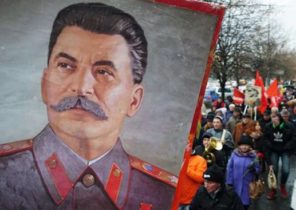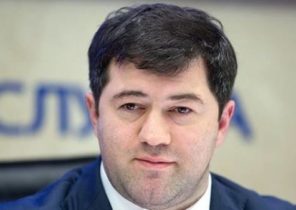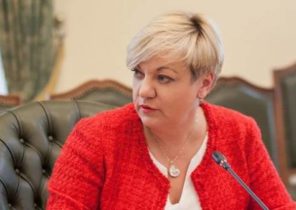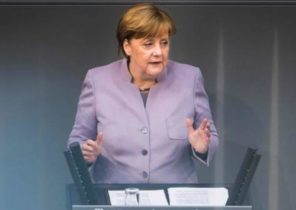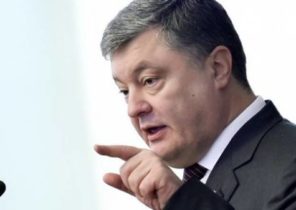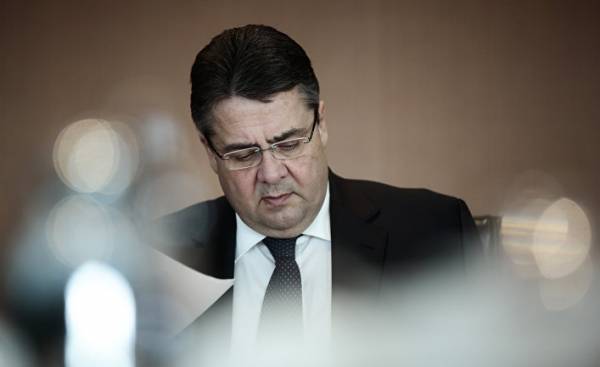
2 Mar Ukraine with two-day working visit there has arrived the Vice-Chancellor, foreign Minister of Germany, Sigmar Gabriel, who recently replaced on this post of the Franco-Walter Steinmeier. Characteristically, these first visits to our country by the chief of German diplomacy against the backdrop of regular violations of a truce in the Donbass, which he personally agreed recently in Munich during a meeting with the foreign Ministers of Russia and Ukraine in the “channel format”.
Adopting from Steinmeier relay to resolve the situation in the Donbass, Gabriel managed to personally see the limitations of diplomacy. Testimony to this are his words: “Even the most intense negotiations yield no result, if there is no political will to implement agreements.” He stated, seeing that violated the ceasefire, which was supposed to act from 20th of February and promises diversion of heavy weapons separatists from the demarcation line in the Donbas are only empty words. It is appropriate to recall a quote of the German Chancellor Otto von Bismarck, who said that “any Treaty signed with Russia, not even worth the paper on which it was signed!”
It is quite obvious that the settlement of the situation in the Donbas will be the most important issue during the negotiations, the German Vice-Chancellor with the highest Ukrainian leadership. After all, despite numerous meetings of Ministers of foreign Affairs of the countries “Norman format” and the West’s calls for Russia to fulfil its part of the Minsk agreements and influence the separatists it backs, has no progress on the implementation of the first three paragraphs of the Minsk-2: the permanent ceasefire, withdrawing heavy arms and equipment and permit the OSCE to monitor equipment designated by militants in the occupied territory.
Yet encouraged by the statement by Mr Gabriel that it was premature lifting of sanctions against Russia due to the lack of tangible progress in the implementation of the Minsk agreements. “We are not in the position to lift the sanctions, despite the fact that probably everyone in Europe would improve relations with Russia”, — quotes the Gabriel Deutsche Welle.
Experts believe that it is hardly possible to expect from the visit of the new Minister of foreign Affairs of Germany breakthrough in finding ways to implement the Minsk agreements. “At the present time simply no prerequisites, because Ukraine does not have a large space, Russia is waiting for the election results in France and Germany, the President of the United States Donald trump, generally there is still no certainty if he’s interested in all Ukraine”, — said the head of programmes in Eastern Europe at the German society for foreign policy (DGAP) Stefan Meister in an interview with Deutsche Welle. According to German expert, may yet be a question, rather, about how to improve the situation for the population in the region, to implement humanitarian initiatives, technical assistance, and should achieve better compliance with the ceasefire. “Something more at this point is simply not to implement,” says Meister.
According to the expert of the Foundation “Science and politics” Steffen Gallenga, the break cannot be due to contradictions between the political and security points, which are different interpretations of Ukrainian and Russian side. And besides, he added, “that Russia identifies military activity in the neighbouring country, so Ukraine certainly has the right to defend itself.”
At the time of preparation of the rooms was not aware of the results of the negotiations of Mr. Gabriel from the Ukrainian by senior management. “Day” turned to the experts to comment on the expectations of the Kyiv visit of the German Minister and as Ukraine needs to work with Germany, where after the elections in September Angela Merkel at the Chancellor can change the social-Democrat Martin Schulz in order to retain the support of Berlin.
“In Berlin you know that the amount of concessions from the Ukrainian side is exhausted”
Serhiy SOLODKY, first Deputy Director of the Institute of world policy:
— Germany supported us in recent years after Russian aggression. But Berlin was also interested in the implementation of the Minsk agreements — as, indeed, Ukraine. I wouldn’t have high hopes that the visit will bring some changes in the previous approaches of Germany. Can you still say that the German Minister continues to be up to speed. Without a doubt, he has formed the opinion on the conflict. But, obviously, such visits can enrich the representation of the new Minister of the important details. I would generally regard this visit as a visit of support. He confirmed that Ukraine remains among the priority directions of foreign policy of Germany. Our (Ukraine and Germany) will something be different at the stage of settlement — the gradual or parallel — however, as shown by the last three years, with arguments Kiev to Berlin are considered. Obviously, until it complies with at least the basic bezopasnostyu the conditions to start a political phase of the settlement would be a sign of poor judgment. Ukraine several times already shown the political will to settle, to compromise, each time losing after that territory — or in the case of the Crimea, or with the so-called Minsk-1 or Minsk-2. I think in Berlin you know that the amount of concessions from the Ukrainian side is exhausted.
Ukraine needs to present its position to seek a more active role of Berlin to put pressure on Russia — or political, or economic. Future German elections are unlikely to change Germany’s attitude to the Kremlin. Martin Schulz is more open and more acute critic of Putin’s policies than even Angela Merkel.
“Germany is ready to help — but on the condition that if Ukraine effectively will make their own part of the business”
Mykola KapitonenkoInstitute of socio-economic research:
— Ukrainian position of Germany at 90% defines the strategy of the EU on our country. For this reason, the visit of the Federal Minister for foreign Affairs can hardly be overestimated. But, unlike their Polish and British colleagues, Sigmar Gabriel will arrive with a mission, like all missions of German politicians in recent years who have arrived in Kiev. It will be a combination of pressure and pragmatism — the usual cocktail that Berlin offers us. Germany is ready to help — but on the condition that if Ukraine effectively will make their own part of the business. This approach is unlikely to change, and the new Minister, probably, again will focus on just such a formula. Ukraine is interested in German — much more interesting than, say, France. Berlin sincerely would like to resolve the conflict in the East of Ukraine, but they understand — better than we do — that there are no simple solutions. To find a balance between policies concerning Russia, the European leadership position in the Ukrainian question — a difficult task for Mr. Gabriel. To satisfy the expectations of German voters and Ukrainian citizens at the same time very difficult. But we have to remember that Germany remains our most important partner in the EU, the partner, ready to help and to talk openly about their own vision. It would be nice to use this case for an active search of common elements in the vision of the future security architecture in Europe.

